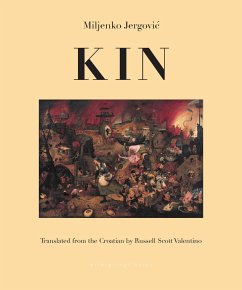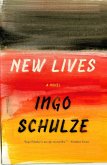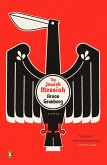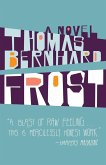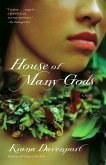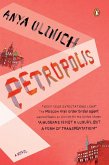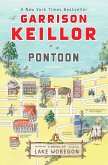Kin is a dazzling family epic from one of Croatia's most prized writers. In this sprawling narrative which spans the entire twentieth century, Miljenko Jergovi peers into the dusty corners of his family's past, illuminating them with a tender, poetic precision.
Ordinary, forgotten objects - a grandfather's beekeeping journals, a rusty benzene lighter, an army issued raincoat - become the lenses through which Jergovi investigates the joys and sorrows of a family living through a century of war. The work is ultimately an ode to Yugoslavia - Jergovi sees his country through the devastation of the First World War, the Second, the Cold, then the Bosnian war of the 90s; through its changing street names and borders, shifting seasons, through its social rituals at graveyards, operas, weddings, markets - rendering it all in loving, vivid detail. A portrait of an era.
Ordinary, forgotten objects - a grandfather's beekeeping journals, a rusty benzene lighter, an army issued raincoat - become the lenses through which Jergovi investigates the joys and sorrows of a family living through a century of war. The work is ultimately an ode to Yugoslavia - Jergovi sees his country through the devastation of the First World War, the Second, the Cold, then the Bosnian war of the 90s; through its changing street names and borders, shifting seasons, through its social rituals at graveyards, operas, weddings, markets - rendering it all in loving, vivid detail. A portrait of an era.
"Vast, generous-spirited story of family across the face of the 20th century in the turbulent Balkans . . . There is beauty aplenty, and ample monstrosity, in Jergovi s account, as well as many moments of mystery: a beekeeper s coded journal, the alpenglow that surrounds Sarajevo as surely as a besieging army, the living torment that is existence, all come under Jergovi s empathetic eye. A masterwork of modern European letters that should earn the author a wide readership outside his homeland."
--Kirkus Reviews (starred review)
"Miljenko Jergovi has lived as a foreigner in Zagreb since 1993, where, as narrator, he channels stories of Sarajevo and the ways in which the city has embodied the 20th century s major flash points religious intolerance, virulent nationalism, and world wars . . . Jergovi devotes the first section to quotidian ancestral history, but even here the scope widens with soaring chapters on the geopolitical changes after WWII . . . dozens of shimmering vignettes build to the hallucinatory novella-length capstone Sarajevo Dogs . . . [Jergovi s] astonishing project offers endless rewards."
--Publishers Weekly (starred review)
"A superb English translation . . . Kin is deeply interested in moments that trickle down through the years, and how, even when languages and the names of countries have changed, when wars have completely reshaped the region, these fleeting seconds have stayed rooted in a family s mind."
--Sarah McEachern, Los Angeles Review of Books
"In [an] excellent translation . . . Jergovi mythologizes his family s history in the manner of Thomas Mann . . . Writing about Sarajevo and its geography, Jergovi delivers a nostalgic, angry, and beautiful tribute to his hometown."
--Damjana Mraovi -O Hare, World Literature Today
"Kin, Miljenko Jergovi s time-travelling, place-hopping epic, is at once a history of family and an ode to Yugoslavia. Spanning the entire 20th century, Kin traces the palimpsestic layers of the region s past from the two World Wars through to the turmoil of the 90s. Taking the dusty objects of his family s past and his own pockmarked memories as the subjects of his enquiry, the book is as much a comment on memory s elusive surface as it is a social history of the region."
--Calvert Journal
" [Jergovic is] a poet, novelist, and journalist of the highest caliber...His concern is for the living and in this collection of stories about Sarajevo and its inhabitants he writes about them with the seriousness, sensitivity, quirky intelligence, and gentle humor of a master of the short story."
-- The New Republic
"Jergovic has the mien of the rare author whose gift is so innate he need only conquer a few demons and steady his hands enough to write it all down."
--San Diego Union Tribune
" From baking to beekeeping, from Satan to citizenship, from the assassination of Archduke Franz Ferdinand to war, famine, and poverty, Jergovi covers the gamut of a hundred year period, a variety of languages, nationalities, religions, historical events and famous and ordinary people . . . Fact or invented, this is a superb family novel."
--The Modern Novel
"Jergovi is neither naïve nor sentimental about the uses of storytelling . . . In a land marked by death and disappearances, storytelling saves the murdered from oblivion . . . In a region scarred by ethnic conflict, of missing persons and forgotten graves, the simple domestic act of remembrance can transform into a more powerful statement against the politics of hatred and annihilation. It is in the everyday that Jergovi hopes to find salvation enough for the entire world."
--Duncan Stuart
"...a multilayered and complex text, which demonstrates why Jergovi is one of the most prominent Croatian authors and one of the most translated European writers."
--World Literature Today on Mama Leone, a winner of Italy's 2003 Premio Grinzane Cavour for Best Book in Translation
"Charting the complexities of the past hundred years as endured by just one family ... Kin illustrates how consequences ripple across the generations and along chains of kinship, whether those ripples [are] formed by actions within the family or imposed upon it by social conditions of the time. . . . Translator Russell Scott Valentino . . . gracefully performed an enormous job."
--Tom Bowden, Book Beat
"Kin is an intimate and painstakingly detailed attempt to comprehend one s own identity . . . Jergovic delivers a nostalgic, irate, touching, and, above everything, beautiful homage to Sarajevo and its geography."
--Damjana Mraovic-O Hare, Transitions
--Kirkus Reviews (starred review)
"Miljenko Jergovi has lived as a foreigner in Zagreb since 1993, where, as narrator, he channels stories of Sarajevo and the ways in which the city has embodied the 20th century s major flash points religious intolerance, virulent nationalism, and world wars . . . Jergovi devotes the first section to quotidian ancestral history, but even here the scope widens with soaring chapters on the geopolitical changes after WWII . . . dozens of shimmering vignettes build to the hallucinatory novella-length capstone Sarajevo Dogs . . . [Jergovi s] astonishing project offers endless rewards."
--Publishers Weekly (starred review)
"A superb English translation . . . Kin is deeply interested in moments that trickle down through the years, and how, even when languages and the names of countries have changed, when wars have completely reshaped the region, these fleeting seconds have stayed rooted in a family s mind."
--Sarah McEachern, Los Angeles Review of Books
"In [an] excellent translation . . . Jergovi mythologizes his family s history in the manner of Thomas Mann . . . Writing about Sarajevo and its geography, Jergovi delivers a nostalgic, angry, and beautiful tribute to his hometown."
--Damjana Mraovi -O Hare, World Literature Today
"Kin, Miljenko Jergovi s time-travelling, place-hopping epic, is at once a history of family and an ode to Yugoslavia. Spanning the entire 20th century, Kin traces the palimpsestic layers of the region s past from the two World Wars through to the turmoil of the 90s. Taking the dusty objects of his family s past and his own pockmarked memories as the subjects of his enquiry, the book is as much a comment on memory s elusive surface as it is a social history of the region."
--Calvert Journal
" [Jergovic is] a poet, novelist, and journalist of the highest caliber...His concern is for the living and in this collection of stories about Sarajevo and its inhabitants he writes about them with the seriousness, sensitivity, quirky intelligence, and gentle humor of a master of the short story."
-- The New Republic
"Jergovic has the mien of the rare author whose gift is so innate he need only conquer a few demons and steady his hands enough to write it all down."
--San Diego Union Tribune
" From baking to beekeeping, from Satan to citizenship, from the assassination of Archduke Franz Ferdinand to war, famine, and poverty, Jergovi covers the gamut of a hundred year period, a variety of languages, nationalities, religions, historical events and famous and ordinary people . . . Fact or invented, this is a superb family novel."
--The Modern Novel
"Jergovi is neither naïve nor sentimental about the uses of storytelling . . . In a land marked by death and disappearances, storytelling saves the murdered from oblivion . . . In a region scarred by ethnic conflict, of missing persons and forgotten graves, the simple domestic act of remembrance can transform into a more powerful statement against the politics of hatred and annihilation. It is in the everyday that Jergovi hopes to find salvation enough for the entire world."
--Duncan Stuart
"...a multilayered and complex text, which demonstrates why Jergovi is one of the most prominent Croatian authors and one of the most translated European writers."
--World Literature Today on Mama Leone, a winner of Italy's 2003 Premio Grinzane Cavour for Best Book in Translation
"Charting the complexities of the past hundred years as endured by just one family ... Kin illustrates how consequences ripple across the generations and along chains of kinship, whether those ripples [are] formed by actions within the family or imposed upon it by social conditions of the time. . . . Translator Russell Scott Valentino . . . gracefully performed an enormous job."
--Tom Bowden, Book Beat
"Kin is an intimate and painstakingly detailed attempt to comprehend one s own identity . . . Jergovic delivers a nostalgic, irate, touching, and, above everything, beautiful homage to Sarajevo and its geography."
--Damjana Mraovic-O Hare, Transitions

